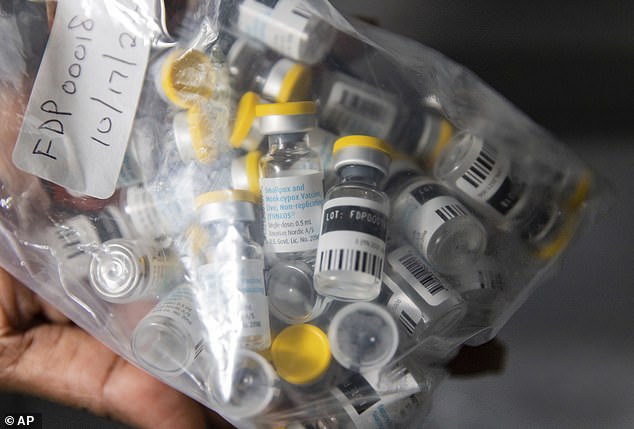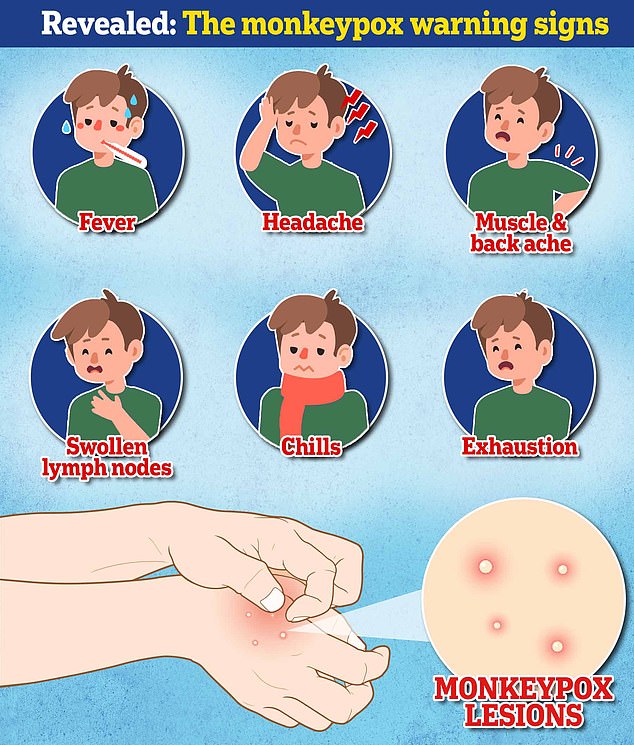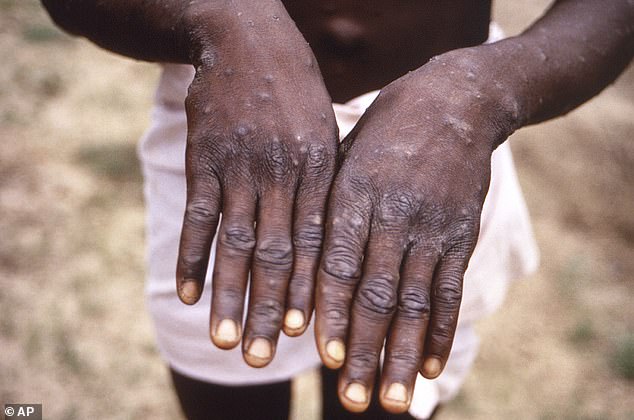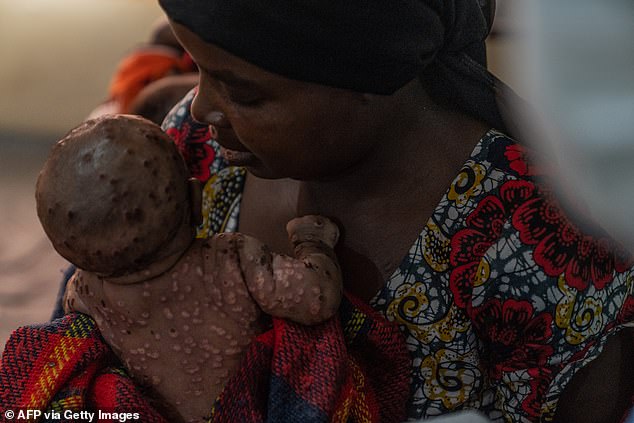Two more people have contracted the deadly new strain of monkeypox in the UK.
The latest cases of mpox Clade 1b have been detected in household contacts of the first case, according to the UK Health Security Agency (UKSHA).
There are now three confirmed cases in the UK.
The two patients are under specialist care at Guy’s and St Thomas’ NHS Foundation Trust in London.
But the risk to the UK population remains low, the UKHSA added.
A woman cares for her baby who suffers from a severe form of mpox in eastern Democratic Republic of the Congo

Single-dose vials of the Jynneos vaccine for mpox are seen from a cooler at a vaccination site in Brooklyn, New York, on August 29, 2022, as the disease sweeps the United States.
Professor Susan Hopkins, UKHSA chief medical adviser, said: “Mpoxpox is highly infectious in households with close contact and therefore it is not unexpected to see more cases within the same household.
‘The overall risk to the UK population remains low. “We are working with partners to ensure all contacts of cases are identified and contacted to reduce the risk of further spread.”
The UKHSA said all contacts will be offered testing and vaccinations as necessary and will be informed of any further care needed if they have symptoms or test positive.
Last week the first British case of the deadly new strain of monkeypox was detected in London.
The unnamed patient was on vacation in an African country and then developed flu-like symptoms on October 21 and a rash three days later.
In May 2022, a global outbreak of mpox, formerly known as monkeypox, began in Africa.
But the latest Clade 1b strain is considered much deadlier, with Britain joining countries such as Sweden, Thailand, India and Germany in cases outside Africa.
The clade 1b mutation, which experts have called “the most dangerous yet,” kills one in ten infected and is believed to be behind a wave of miscarriages.
Clade 1b will spread around the world in 2022 and will mainly affect gay and bisexual men.
The strain is estimated to kill about 5 percent of adults who contract it, but the mortality rate rises to one in 10 in children.
However, experts say Central Africa’s clade 1b mortality rates are unlikely to be replicated in developed countries such as the UK due to better access to higher quality healthcare.
Authorities do not yet know how the first unidentified patient became infected with the strain, although skin-to-skin contact is suspected.
The first human case was recorded in 1970 in the Democratic Republic of the Congo (DRC) and since then the infection has been reported mainly in countries in central and western Africa.
In July, the World Health Organization (WHO) declared an ongoing mox outbreak in several Central African nations a “public health emergency of international concern.”
This is the same designation that the WHO gave to Covid in late January 2020, just weeks before the virus swept the world, and some scientists have compared the current outbreak to the “early days of HIV.”
Mpox causes characteristic lumpy lesions, as well as fever, pain, and fatigue.
However, in a small number of cases, it can enter the blood and lungs, as well as other parts of the body, when it is life-threatening.
The current mpox vaccines, which are designed to act against smallpox, a close relative of the mpox virus, were used during the 2022 outbreak against the milder strain.
But they have yet to be extensively tested against the most potent clade 1b strain.
Diseases such as clade 1b mpox are treated in what are called ‘high consequence infectious diseases’ units in the NHS, such as that at The Royal Free.


Officials say they still consider the threat clade 1b poses to the public in Britain to be “low”
The Royal Free treated Ebola patients at this unit in 2015.
Dr. Brian Ferguson, an immunology expert at the University of Cambridge, said the mpox situation is worrying in part because of the number of children it is infecting.
The WHO and NHS recommend getting vaccinated within four days of contact with someone who has the virus or within 14 days if there are no symptoms.
It is recommended that healthcare workers and men who have sex with men receive the vaccine even if they have not been exposed to mpox.
There are no direct treatments available with doctors who focus rather on helping the patient help their body fight the virus.

